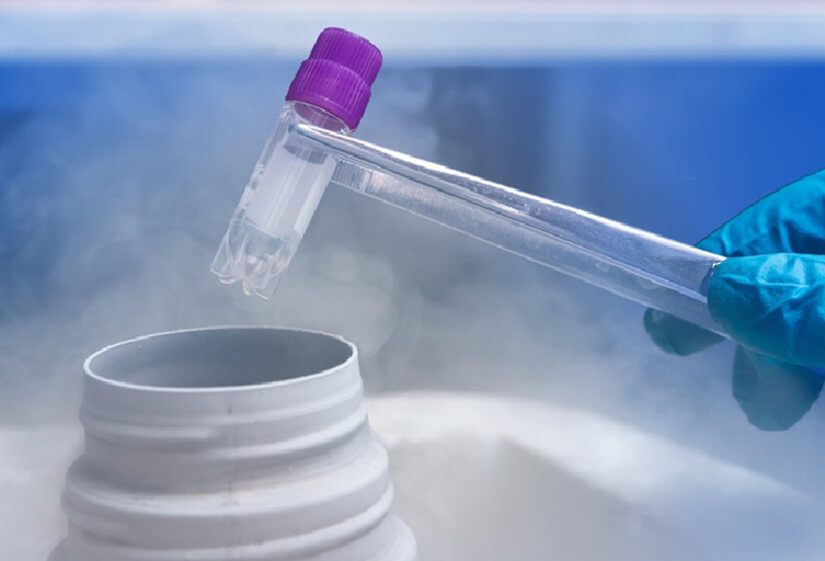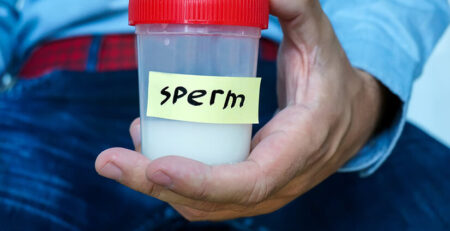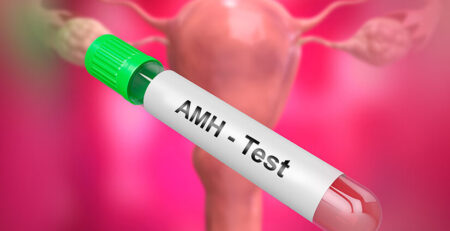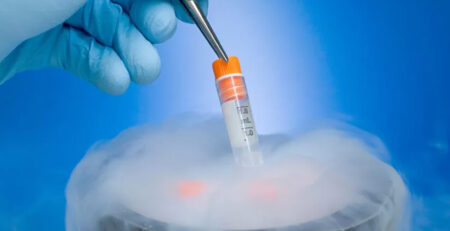Egg Freezing vs. Embryo Freezing: Making the Right Choice for Your Future
Are you thinking about taking control of your reproductive future?
With advancements in fertility technology, options like egg freezing and embryo freezing have become more accessible and viable. Whether you’re considering delaying parenthood for personal or professional reasons or preparing for medical treatments that may affect your fertility, understanding these options is crucial. Let’s dive into the world of egg freezing and embryo freezing, unravelling the mysteries and helping you make an informed decision.
The Basics: What Are Egg Freezing and Embryo Freezing?
Egg Freezing involves extracting, freezing, and storing a woman’s eggs for future use. It’s a way to preserve fertility, allowing women to use their younger, healthier eggs when they’re ready to conceive. This process is especially beneficial for women who want to delay motherhood but are concerned about the natural decline in fertility that comes with age.
Embryo Freezing, on the other hand, involves fertilizing the eggs with sperm before freezing them as embryos. This method is commonly used in conjunction with IVF (in vitro fertilization) treatments to freeze surplus embryos after embryo transfer procedure. By freezing embryos, couples can increase their chances of a successful pregnancy later, as embryos tend to survive the thawing process better than unfertilized eggs.

How Do They Work?
Egg Freezing
Ovarian Stimulation: Hormones stimulate the ovaries to produce multiple eggs. This step usually takes about 10 to 14 days and involves daily hormone injections.
Egg Retrieval: Eggs are collected from the ovaries using a minimally invasive procedure called transvaginal ultrasound aspiration. This is typically done under sedation to minimize discomfort.
Freezing: The eggs are frozen using vitrification, which prevents ice crystal formation that could damage them. This method ensures that the eggs remain viable for future use.
Embryo Freezing
Ovarian Stimulation and Egg Retrieval: Same as egg freezing.
Fertilization: The retrieved eggs are fertilized with sperm in a lab to create embryos. This can be done using traditional IVF methods or intracytoplasmic sperm injection (ICSI), where a single sperm is injected directly into an egg.
Freezing: The resulting embryos are frozen for future use using vitrification. Embryos can be stored at different stages of development, typically from day 3 (cleavage stage) to day 5 or 6 (blastocyst stage).
The Key Differences
While both procedures aim to preserve fertility, the main difference lies in the timing of fertilization. Egg freezing saves unfertilized eggs, giving women the flexibility to choose a partner or donor later. Embryo freezing, however, requires a sperm source at the time of fertilization, making it a suitable option for couples ready to commit to parenthood.
When to Consider Egg Freezing
Career Planning: If you’re focusing on your career and want to delay motherhood, egg freezing offers peace of mind knowing that your younger eggs are stored safely for future use.
Medical Treatments: Women undergoing treatments like chemotherapy that may affect fertility can benefit from egg freezing. By preserving eggs before treatment, women can have the option to conceive after recovery.
Personal Reasons: Whether it’s waiting for the right partner or simply not feeling ready for motherhood, egg freezing offers flexibility and control over your reproductive timeline.
When to Consider Embryo Freezing
IVF Treatments: Embryo freezing is a common step in IVF, allowing multiple embryos to be created and stored. This increases the chances of a successful pregnancy with each IVF cycle, as embryos can be thawed and transferred at optimal times.
Genetic Screening: Couples concerned about genetic disorders can opt for embryo freezing after preimplantation genetic testing (PGT) to select healthier embryos. This can significantly reduce the risk of passing on genetic conditions.
Known Partner: If you have a committed partner and are ready to create embryos, this option might be more straightforward. It ensures that viable embryos are ready for transfer whenever you’re ready to proceed with pregnancy.

Success Rates: Which One Is More Effective?
Success rates can vary based on factors such as age, the quality of eggs or embryos, and the freezing technique used. Generally, embryos have a higher chance of survival after thawing compared to eggs. However, advancements in egg freezing techniques have significantly improved outcomes over the years. According to recent studies, the success rates of pregnancies from frozen eggs are now comparable to those from fresh eggs, thanks to the improvements in vitrification technology.
Emotional Considerations
Egg Freezing
Empowerment: Offers autonomy and flexibility, allowing women to take control of their reproductive futures without immediate pressure.
Uncertainty: There is no guarantee that all frozen eggs will result in successful pregnancies. Women must be prepared for the possibility that not all eggs will survive the thawing process or result in a viable embryo.
Embryo Freezing
Security: Higher success rates can be reassuring for those concerned about future fertility.
Commitment: Requires deciding on a sperm source upfront, which may feel restrictive for some. Couples must also consider the legal and ethical implications of storing embryos, such as what happens in the event of separation or changes in circumstances.
Financial Aspects
Both procedures can be expensive and often require significant financial planning. Costs can include ovarian stimulation medications, the retrieval procedure, and storage fees. It’s important to consult with a fertility specialist to understand the full financial implications and explore potential insurance coverage or financing options.
Legal and Ethical Considerations
With both egg and embryo freezing, it’s essential to consider the legal and ethical implications:
Ownership and Disposition: Deciding who has legal rights to the eggs or embryos, especially in cases of separation or death. It’s crucial to have clear agreements in place to avoid disputes.
Future Use: Ethical considerations about the future use of stored embryos, including what happens to unused embryos. Some couples may choose to donate unused embryos for research, while others may opt for compassionate disposal.
Other Less Talked-About Aspects
Impact on Mental Health: Both procedures can be emotionally taxing. It’s important to have psychological support and counselling throughout the process. The emotional rollercoaster of hormone treatments, retrieval procedures, and the wait for results can be challenging.
Long-Term Storage: The effects of long-term storage on egg and embryo viability are still being studied, though current data is promising. It’s important to stay informed about the latest research and to discuss any concerns with your fertility specialist.
Lifestyle Adjustments: Hormonal treatments can affect your daily life temporarily, and being prepared for these changes can ease the process. Side effects can include mood swings, bloating, and discomfort, and understanding these can help manage expectations.
The Role of the IVF Specialist in Delhi
Choosing the right IVF specialist is crucial for the success of egg freezing and embryo freezing. An experienced specialist can provide personalized care, explain the nuances of each procedure, and help you make the best decision based on your unique circumstances. When looking for an IVF specialist in Delhi, consider factors such as their success rates, patient reviews, and the clinic’s facilities.
Technological Advancements
Recent advancements in fertility preservation technologies have significantly improved the success rates of both egg and embryo freezing. Techniques such as vitrification have reduced the risk of ice crystal formation, enhancing the survival rates of eggs and embryos. Continuous research and development in this field promise even better outcomes in the future, making these options more reliable and accessible.
Personal Stories
Hearing from women who have undergone egg freezing or embryo freezing can provide valuable insights and reassurance. Personal stories highlight the real-life impact of these procedures, showcasing both the challenges and the successes. For instance, many women have shared their experiences of feeling empowered by egg freezing, knowing they have taken a proactive step toward their future. Similarly, couples who have successfully used frozen embryos to conceive often express gratitude for the opportunity to build their families despite facing fertility challenges.
The Final Thoughts
Choosing between egg freezing and embryo freezing is a personal decision that depends on your unique circumstances and future plans. Both options offer valuable ways to preserve fertility and provide hope for those who want to start a family later in life.
By understanding the differences, benefits, and considerations of egg freezing and embryo freezing, you can make a well-informed decision that aligns with your personal and professional goals. Whether you’re looking to preserve your fertility for medical reasons, career planning, or personal choice, these advanced technologies offer promising solutions. Don’t hesitate to seek advice from experts and take the first step towards securing your reproductive future.
Consulting with an IVF specialist in Delhi can provide personalized guidance and help you navigate this important decision.
If you’re considering egg freezing or embryo freezing, schedule a consultation with Dr. Rhythm Gupta, a leading fertility specialist in Delhi. Dr. Gupta offers personalized care and advanced fertility treatments to help you take control of your reproductive future. Reach out today to learn more about your options and start your journey toward parenthood with confidence.












